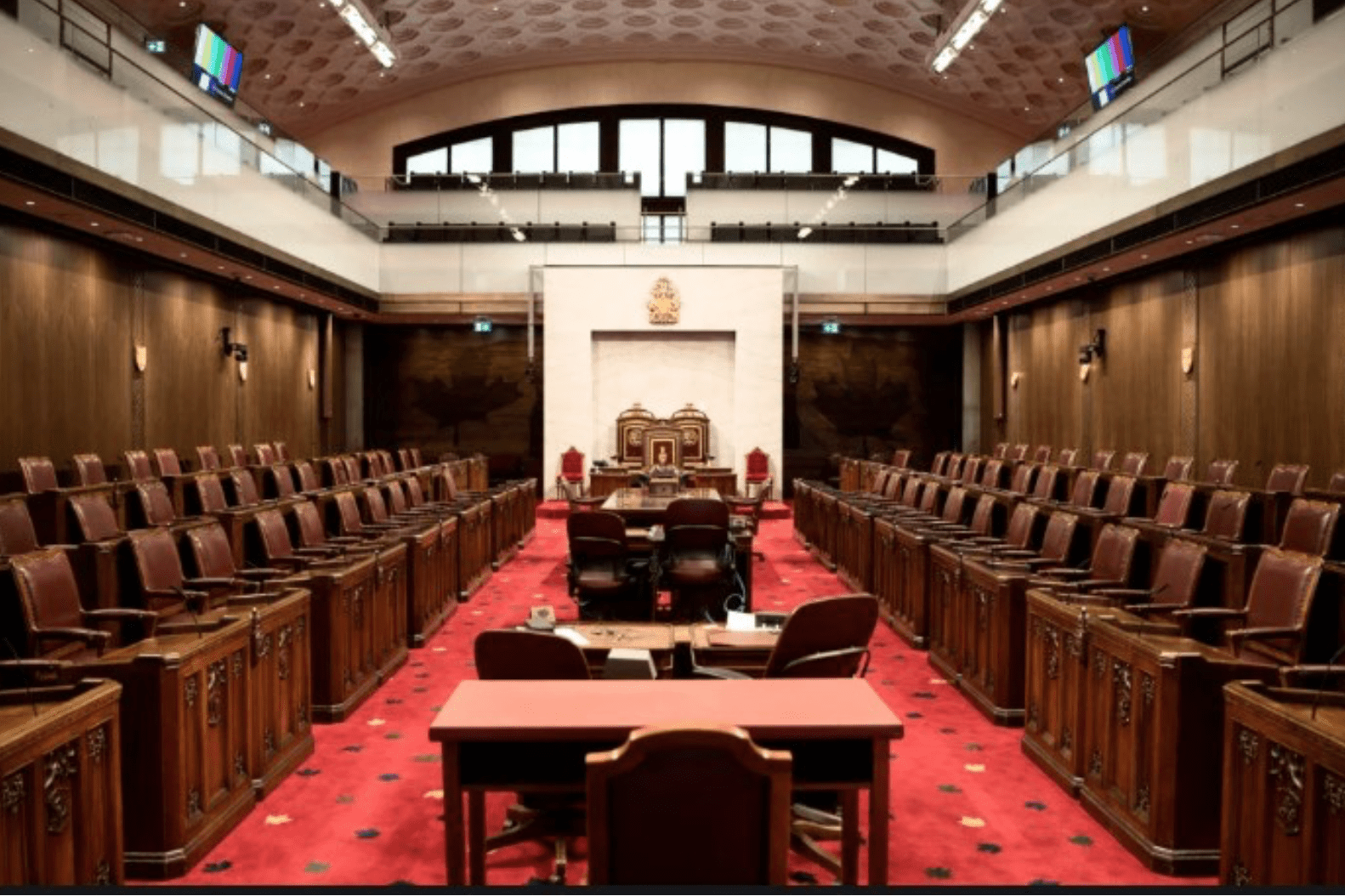The current government has made a habit of abusing parliamentary process over the course of the global pandemic in its attempts to pass emergency legislation, with actual debate curtailed time and again in favour of backroom negotiations with opposition parties that has no public record. It's been even worse in the Other Place, as senators have been presented with bills, sight-unseen, and demands that they be passed swiftly with no scrutiny and virtually no debate, under the threat that Canadians need these benefits right now if not sooner. This week, a group of senators decided that enough was enough.
"The [Canadian Senators Group] members also continue to be frustrated by the continuing pressure from the government on the Senate to simply rubber-stamp significant complex and wide-ranging pandemic-related legislation, spending billions of dollars without proper scrutiny, and with little or no debate during one-day sittings," Senator Scott Tannas, the CSG's leader, said in a statement.
To that end, Tannas has introduced a motion in the Senate that would ensure that until the end of the pandemic, any government legislation would require at least a week of debate before a final vote in the Senate, and if it was a genuine emergency, that the government would be required to justify why they needed to move faster. And to make their case, they also ensured that the current pandemic-related bill, C-4, would take three days in the Senate rather than be rubber-stamped in a single day, which should be more than reasonable for anyone who values the parliamentary process.
Of course, that gesture of defiance in the face of a government that is routinely abusing process led some to immediately clutch their pearls and denounce the Senate, such as NDP MP Charlie Angus, who declared that these senators had the "nerve" to deny Canadians their benefits. Nobody is denying benefits, because the bill will get passed, but they are perfectly within their rights to make the government sweat a little because they have been ramming bills through without regard for proper process or procedure and democracy is process. When you start finding shortcuts around it as a matter of course, you have a problem.
The government's decision to shut down parliament over the spring and summer, with the support of the NDP, has a lot to do with why the current situation has reached this point. Rather than figure out a way to keep proper sittings going, either through a skeleton parliament or by establishing a Parliamentary bubble, the government created the situation whereby all legislation had to be an "emergency," and passed without proper process, scrutiny or oversight. Their creation of hybrid sittings were a kind of make-work project that they justified by citing how many more questions per week the opposition got to ask the government in faux-Question Period style, as though Question Period was the end-all and be-all of parliament, when that is not the case at all. And because they habituated the Commons to this deeply problematic hybrid scenario, we are now in a case where they have begun using it for regular sittings, and are normalizing it for the future.
Worryingly, there are now calls in the Senate to adopt this same hybrid system, including from Tannas and the CSG, and the Government Leader in the Senate, Senator Marc Gold, has promised a motion on introducing them shortly. There has been little regard for the fact that these "hybrid" sessions are more resource-intensive for staff, and are causing the corps of parliamentary interpreters to burn out and suffer cognitive injuries because they are more taxing and the constant problems of connectivity. The "hybrid" voting system is proving to be unsustainable, with votes lasting over an hour each and these are the least evil voting option, given that some MPs continue to clamour for app-based voting, which is ripe for abuse.
The Conservatives in the Senate are planning to oppose these plans, but they no longer have the numbers to block them though their input shouldn't be ignored because they are the official opposition and it's their duty to hold the government to account, and should have the best tools available to do so. Nevertheless, because Tannas and Senator Yuen Pau Woo, leader of the Independent Senators Group, are both in favour of these hybrid sittings, and with the Government Leader seemingly in support as well, they are likely to be shoved through the Senate as well, instead of the Senate being more accommodating to senators who would rather do the sensible thing like staying in Ottawa for the duration of the session so as to minimize travel back to their home provinces.
Of course, it's unlikely that this decision will be finalized this week, and the current plan is that the Senate won't sit again until the end of October, which is also pretty shocking, because they should be getting their committees up and running (as they have not yet actually managed to do so since the election, given some of the drama that Senator Woo has created), and doing their work of holding government to account, either by way of an agreement on reduced numbers, or to practice a parliamentary bubble where they organize themselves in a way that respects distancing in the Chamber (which should not be that difficult to do). It also sends the message that the Senate is only there to rubber-stamp government legislation, which is not the case. The government could even introduce one or two of its own bills in that Chamber, as they are able to do so, in order to get the process moving on them rather than have senators wait for bills to pass the Commons first. The way this is being handled, particularly by the government, is corroding our parliamentary institutions, and we should be very wary about it. Good on the CSG for standing up for the Senate's role but let's hope they come to their senses about "hybrid" sittings.
Photo Credit: Senate Of Canada








